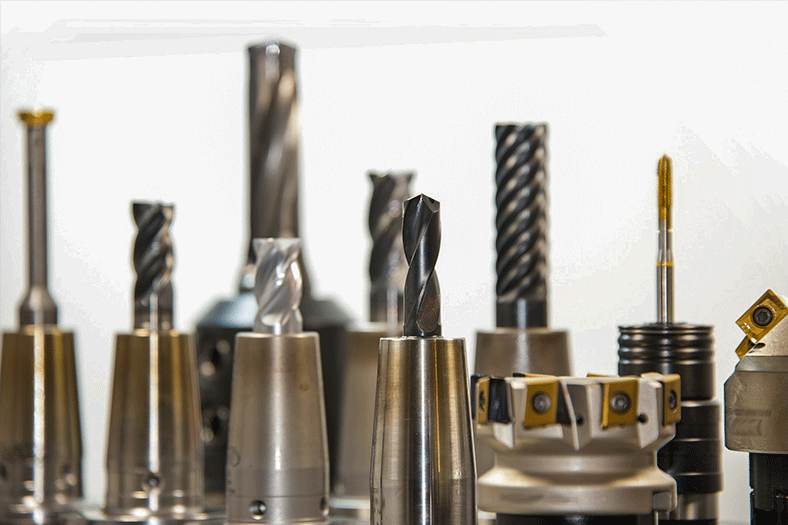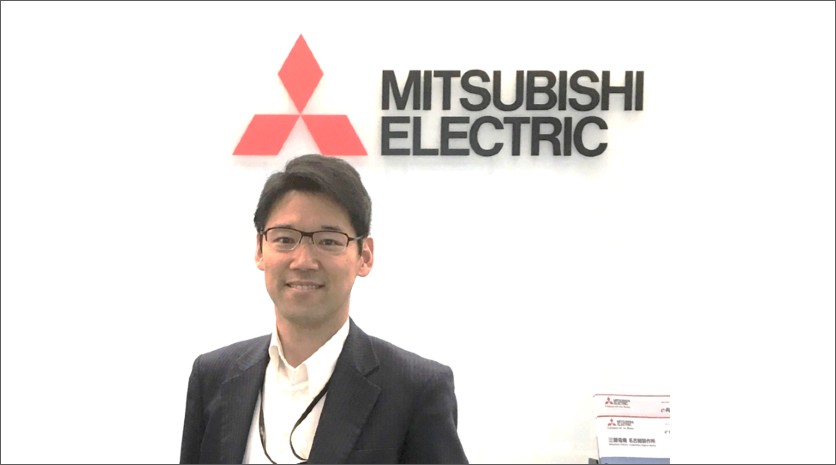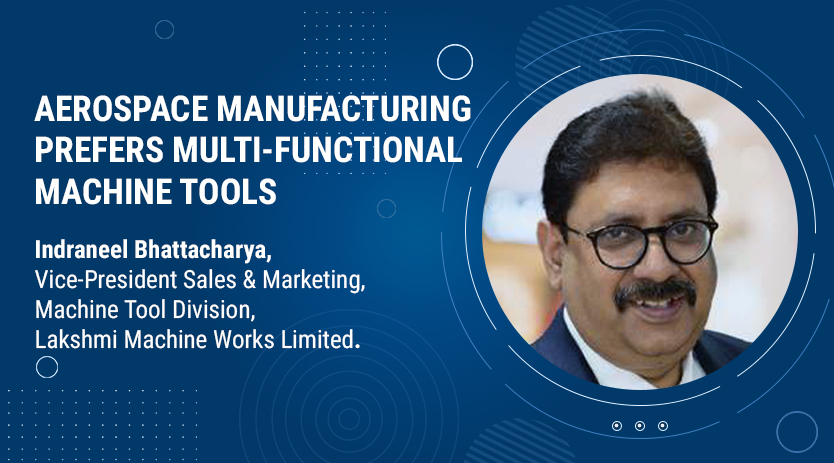Rising demand from allied industries fuel CNC market growth
May 7, 2020 4:05 pm
Industry 4.0, IoT, and increasing demand from automotive, aerospace, power, construction and other industries are facilitating fresh growth and process developments in the CNC machine sector.
The global computer numerical control (CNC) machines market size was valued at $67.19 billion in 2019 and is expected to expand at a CAGR of 7.3 percent from 2020 to 2027. The increasing advancements in production technology have led to a reduction in the time required for manufacturing components along with the ability to produce components with better surface finish. The modern machine variants are compact and can function with or without operators or supervisors to constantly monitor the machine operations. We analyse the numerous factors driving the growth of the CNC market and the technological and business aspects the segment must focus on for renewed growth.
Major growth drivers of CNC market
With the Internet of Things (IoT) leading the indomitable march of Industry 4.0, it is no surprise that CNC machining is dominating the lathing, milling, and grinding sectors. Moreover, growth in smart factories powered by artificial intelligence systems will boost the uptake of CNC machines. The demand for these machines will intensify further as they will lower the machining time and labour cost and increase productivity. Lastly, the advent of Industry 4.0 will further accelerate the CNC machine market growth.
Rajesh Nath, Managing Director, German Engineering Federation (VDMA) tells us, “The CNC machine market growth has been fuelled by immense demand from automotive, aerospace and defence, power and energy, construction equipment, industrial, and several other large-scale manufacturing plants. The increasing expenses of employing operators for individual machinery are expected to further fuel the demand for automated CNC machines.”
Vineet Seth, Managing Director – South Asia & Middle East, Mastercam APAC, explains further, “Transport and consumer goods sectors, put together, possibly contribute the most to the growth of the CNC market. When consumer demand increases for both the segments, we see a natural rise in the demand for CNC machines in the market. Growing technological advancements in the medical field also make this industry one of the top proponents of growth for the CNC market. The die and mould market, as a subgroup of all these aforementioned sectors, keep pushing the CNC market to innovate and provide newer technologies to assist complex manufacturing techniques.”
Ninad Deshpande, Head – Marketing & Corporate Communication, B&R Industrial Automation, informs us, “There are eight industries contributing to the deployment of CNC machines. CNC machining has gained prominence from the point of ease of handling, rising operational costs and precision. Many reports suggest that the global CNC market is expected to rise to over $110 billion in the next seven years. Moreover, implementation of CNC controls in manufacturing helps in manufacturing products with high quality, accuracy, and precision. Further, the demand for automatic tool change and multi-axis machining has drastically increased.”
Sharadhi Babu, CEO, AXISCADES, elaborates, “The industries that will contribute most to the growth of the CNC segment are aerospace, medical, and defence. Even though the automotive and construction equipment sectors are currently low, there will be an upswing in the coming years.”
Demand for high-precision components and faster deliveries continue to be the growth drivers in the CNC market. Implementation of industry 4.0 aspects like feedback system (vibration, heat, tool life and other parameters) are in high demand.
Barriers impeding growth of Indian CNC manufacturing companies
There has been continuous demand of CNC machines in the Indian manufacturing industry, with advancement and implementation of IoT and machine learning that replace traditional manufacturing with advanced manufacturing. However, Indian manufacturers have always faced challenges in the growth of the CNC market because of the following factors:
- Large costs associated with the purchase of these machines as well as the costs associated with their maintenance are expected to restrict the growth of the market.
- Lack of trained manpower to operate and maintain these machineries also creates a barrier for CNC market growth in India.
Nath shares, “In case of unforeseen breakdowns, manufacturers need to spend a significantly higher amount than planned maintenance programmes. These factors would also hinder the market growth to a great extent. This ultimately marks the rise of the prices of the end product in the market.”
Seth adds, “Manufacturing growth of the nation, as a factor of GDP, limited manufacturing exports, and the large imports of advanced technological products are the main inhibitors of CNC market growth in our country. Adding to the above, the limited number of entrepreneurial forays into core manufacturing also limits the growth of the domestic CNC market.” With reduced mortgage interests and the possibility of many foreign companies setting up manufacturing operations in India post COVID-19, there may be an opportunity of a lifetime to boost the Indian manufacturing sector. This may well lead to an exponential growth of the CNC market for the immediate few years.
Babu shares, “Electrification of the automotive industry has, in a way, changed various industries that were dependent on the output. Usage of batteries over IC engines has created a new scenario in the market as a lesser number of parts in BOM needs to be taken through CNC manufacturing. Slowdown in the global economy, not scaling the technological capabilities to global standards, and higher investment and running costs are some of the barriers for CNC manufacturing companies in India.”
Focus areas for renewed growth of the CNC machine market
Differentiation is the most important aspect for renewed growth. Usually CNC controls are out-of-the-box solutions, but then there is a limited way in which one can differentiate them from competition. Deshpande explains, “OEMs need to look at possibilities, which help them to work more on the differentiation aspect. B&R enables machine builders to unite CNC and machine control, which helps them not only increase precision but also reduce huge costs. With B&R mapp Technology, machine builders can configure more and programme less, thus reducing development time by up to 67 percent. Moreover, machine builders do not need to choose high-end, expensive hardware for implementing futuristic designs in automation and they can be handled in standard B&R PLCs or PCs depending on the choice of the machine builder. B&R helps machine builders to differentiate and add value to their machines cost-effectively.”
Babu states, “The CNC industry is already adopting innovations in machining hardware and equipment. For example, a 3-axis machining centre can be upgraded to 5-axis capabilities by adding a trunnion that adds tilt and rotation of the workpiece. An automated tool changer can also come as an upgrade, with increases in the count of tool holders allowing for more operations with fewer set-ups due to tool capacity. The CNC industry is also benefitting by adopting Industry 4.0 methodologies. The data collected will help make better decisions by optimising machine uptime, scheduling maintenance, etc. All of this put together will result in improved productivity.”
Seth adds to the discussion by saying, “Promoting the Make in India movement, innovating in technologies that benefit MSMEs, offering competitive pricing, investing in customer education and upskilling are some of the suggestions for driving growth in this segment.”
Technologies like thermal expansion algorithms are going to be critical technological changes in CNC manufacturing, which help to predict when a tool is out of tolerance. Nath explains, “In present CNC machines, the operator has to check whether the tool is worn out or not. But this thermal expansion algorithm would eliminate this manual check by the operator, which could lead to reduction of cycle time and improve the quality of product.”
The technological advancement in CNC machines could evolve the future market in the automobile and aerospace industries by manufacturing high-precision products, which would be the topmost priority in the manufacturing sector. Integration of operation of CNC machines with Industry 4.0 through the entire value chain, from programming to simulation and production, all applied at the software level, offer a distinctive advantage. This will reduce human intervention, and quality of the end product would improve. This would also enable the manufacturer to conduct machining of very complex parts as often seen in aerospace, F1 and increasingly automotive, where car designs are becoming more diverse and advanced.
Rajesh Nath, Managing Director, German Engineering Federation (VDMA)
The CNC machine market growth has been fuelled by immense demand from automotive, aerospace and defence, power and energy, construction equipment, industrial, and several other large-scale manufacturing plants.
Ninad Deshpande, Head – Marketing & Corporate Communication, B&R Industrial Automation
CNC machining has gained prominence from the point of ease of handling, rising operational costs and precision.
Vineet Seth, Managing Director – South Asia & Middle East, Mastercam APAC
Manufacturing growth of the nation, as a factor of GDP, limited manufacturing exports, and the large imports of advanced technological products are the main inhibitors of CNC market growth in our country.
Sharadhi Babu, CEO, AXISCADES
The CNC industry is already adopting innovations in machining hardware and equipment.
Cookie Consent
We use cookies to personalize your experience. By continuing to visit this website you agree to our Terms & Conditions, Privacy Policy and Cookie Policy.

















 English
English Hindi
Hindi